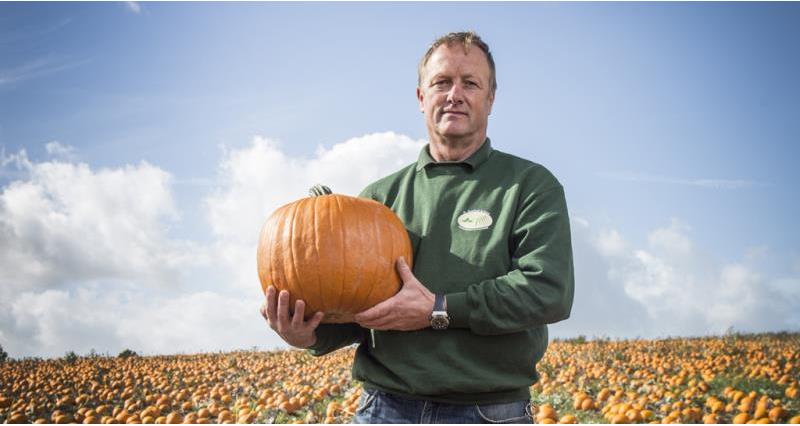British Farmer and Grower magazine's Chad Mulholland meets an NFU member who is concerned about what the post-Brexit future holds.
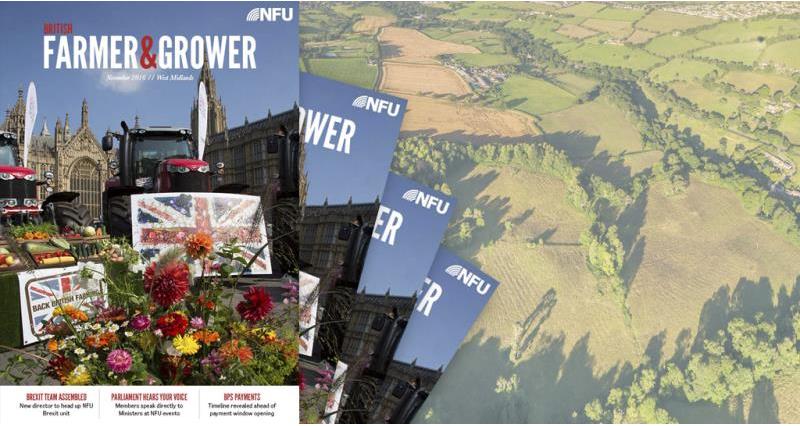
There’s nothing quite like being met with a field of orange on a bright morning in the Midlands. The field of pumpkins is hard to miss even through the dense hedges, and because of the rolling landscape you feel as though you are constantly being approached by an amber wave.
But this is normal for Paul Southall and his business partner and brother Mike, who are fourth generation farmers at Norchard Farm in Stourport-on-Severn, set among the undulating hills and farmland of Worcestershire.
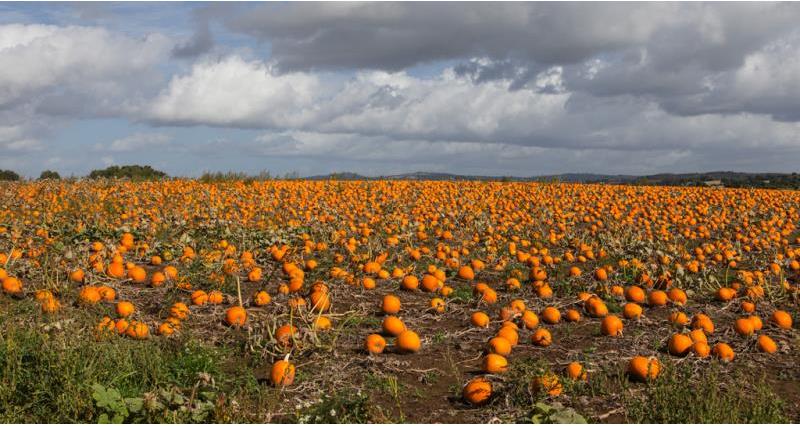 Growing on 1,100 acres, D. Southall and Sons’ largest crop is dwarf French beans but they grow a whole range of produce, including asparagus, carrots and five varieties of pumpkin: munchkins, mixed squash, edible, carvers and monsters. And at this time of year with Halloween knocking on the door, the business is a hive of activity.
Growing on 1,100 acres, D. Southall and Sons’ largest crop is dwarf French beans but they grow a whole range of produce, including asparagus, carrots and five varieties of pumpkin: munchkins, mixed squash, edible, carvers and monsters. And at this time of year with Halloween knocking on the door, the business is a hive of activity.
“We’re programmed to grow roughly 350,000 pumpkins altogether. We plant in May when we hope to be frost free. We either put plants in which are grown through black mulch or we directly drill the seeds which we did quite a lot of this year,” Paul said. But growing the perfect pumpkin and producing to such a high programme is far from straightforward, as Paul explained.
“Pumpkins like fine, fertile soil that can retain moisture. They love warm conditions so this year’s cool wet June wasn’t ideal and this was followed by a very dry July, so not perfect growing conditions but then again you rarely have it perfect.”
The largest pumpkin he’s grown, in a local competition, weighed in at just less than 100 pounds although his brother managed to grow a slightly larger one, much to Paul’s annoyance. But there’s an air of uncertainty, brought on by the outcome of the EU Referendum vote.
Like most horticultural businesses the Southall’s farm relies on the availability of labour and has been expanded to respond to the growing access they’ve had. All 350,000 pumpkins are hand harvested by seasonal workers using pruners or a larger lopper cutter.
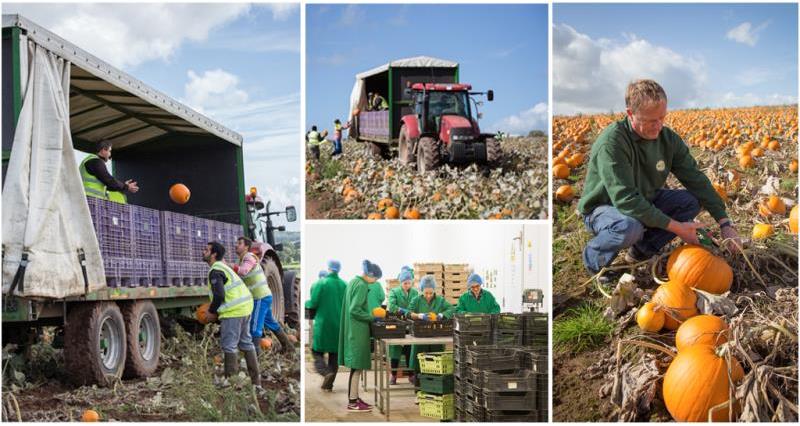 Once harvested the pumpkins are cleaned again, graded and then labelled on site before being sent off to depot.
Once harvested the pumpkins are cleaned again, graded and then labelled on site before being sent off to depot.
“Having access to seasonal workers now that we’re leaving the EU is a concern. If there’s no free movement of labour and it takes a year or two to create a new scheme that’s not administered properly, then I can see severe pain, not just for our business but for the whole industry,” he said.
During the EU Referendum the NFU repeatedly drew attention to the agricultural sector’s need for access to harvest labour, both seasonal and full-time.
As the UK prepares to leave the EU in the coming years, the NFU wants to ensure that farmers and growers have access to the workers they need to keep farm businesses profitable, with a strong and thriving future.
Under the now-closed Seasonal Agricultural Workers Scheme (SAWS), more than 22,000 people from Bulgaria and Romania were provided with a working visa allowing them to stay for between five weeks and six months in Britain to work solely on farms.
The lifting of the restrictions in 2014 created a labour shortage in agriculture and results from an NFU survey revealed that some 29% of growers experienced problems recruiting enough labour in 2015 and some 66% expected reductions in labour availability by 2018.
And now, farmers and growers face the prospect of experiencing yet another, potentially more severe labour market shortage when the UK leaves the EU.
The NFU’s horticulture and potatoes board chairman echoes the fears of many farmers, reiterating that this issue isn’t going away. This is why the access to EU labour is high on the list of priorities for the team and an area that the NFU is lobbying fiercely on.
From the Hort Board...
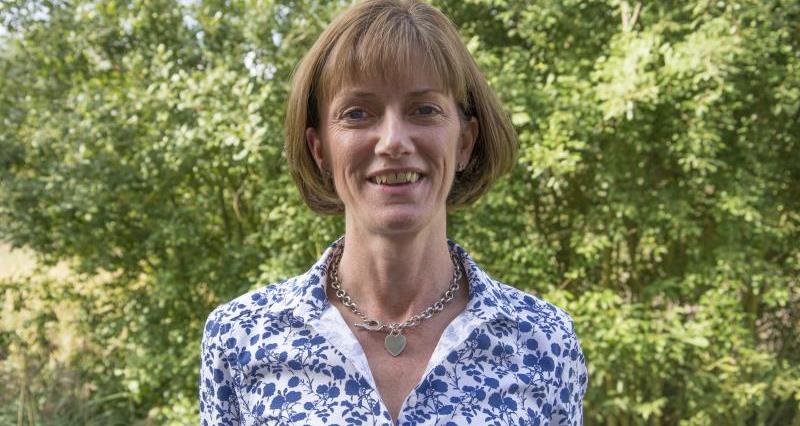 Board chairman Ali Capper said: “For me and many other growers access to labour is much the most important and urgent issue and was a worry even before the referendum – free movement of EU labour wasn’t giving us the solution. We now have an opportunity to lobby to securealabour force of both permanent and seasonal workers, but it has to be done quickly.”
Board chairman Ali Capper said: “For me and many other growers access to labour is much the most important and urgent issue and was a worry even before the referendum – free movement of EU labour wasn’t giving us the solution. We now have an opportunity to lobby to securealabour force of both permanent and seasonal workers, but it has to be done quickly.”
The sector alone uses around 80,000 seasonal workers to hand-pick fruit, vegetable and flower crops across the country. This is expected to rise to 92,000 by 2021 based on growth projections.
And most of the seasonal labourers who work on the Southall’s farm are returnees predominantly from Bulgaria, Poland and Romania. It’s an issue that the NFU is working extensively on. Put simply, horticultural business cannot survive without that vital access to labour.
 The NFU’s chief horticulture adviser, Chris Harfield, said: “If there aren’t enough people to pick the crops when harvest is underway, valuable crops could be left to rot in the fields. This would have devastating consequences for the public in terms of availability of fresh British fruit and veg on supermarket shelves and for the farming industry in terms of avoidable food waste and associated costs.
The NFU’s chief horticulture adviser, Chris Harfield, said: “If there aren’t enough people to pick the crops when harvest is underway, valuable crops could be left to rot in the fields. This would have devastating consequences for the public in terms of availability of fresh British fruit and veg on supermarket shelves and for the farming industry in terms of avoidable food waste and associated costs.
The NFU Horticulture and Potatoes Board on Brexit priorities...
As part of the NFU’s industry-wide Brexit consultation, both the NFU horticulture and potatoes board and members developed the following key areas for the sector:
• Access to labour. Ensure that businesses continue to be able to access the seasonal and permanent labour they need.
• Crop protection.Implement a UK pesticide framework which delivers a more robust crop protection toolbox for growers.
• Trade and producer organisations. Ensure that a future strategy delivers a trade advantage for British growers, which is enhanced with support for investment and innovation.
• Plant health. Put in place robust biosecurity measures that are balanced with simple access to the imported plant material UK growers depend on.
A discussion paper providing more detail is available in the horticulture and potatoes section on NFUonline.
Dr Hartfield said: “These Brexit priorities need to be set in the context of the board’s growth strategy, which encompasses increasing self-sufficiency, import substitution and increasing exports all over the world. The UK’s exit from the EU now gives our sector an excellent opportunity for growth in both scale and profitability.”
Feeling the squeeze...
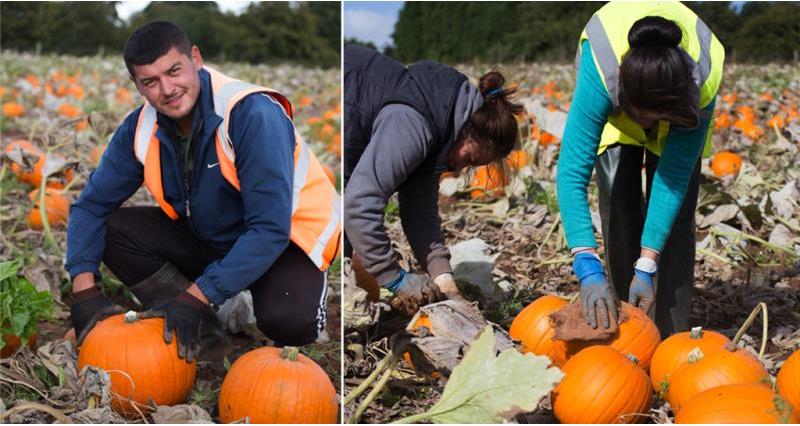 Paul explained that the business, owned by the family since 1907, has been built up entirely on the availability of hard working, reliable labour.
Paul explained that the business, owned by the family since 1907, has been built up entirely on the availability of hard working, reliable labour.
But that’s just one area that has caused his business to feel the squeeze. Due to the introduction of the national living wage earlier this year, and in conjunction with the supermarket price war, his harvest workers have to be ultra-efficient, if the business is to make a margin.
“Looking to the future, I’d like to see a new scheme introduced that isn’t exclusive to students as there aren’t really enough students available from Eastern Europe to fill demand. I think those days are over. Also if we aren’t in the EU then why limit the scheme to European countries. But I know that the NFU is aware of this,” he said.
The NFU is currently lobbying for detailed discussions with government officials around the needs for labour.
“We think we need to be piloting a trial scheme next year to ensure this essential workforce remains available in the future,” Dr Hartfield said.
For this to work practically this trial would need to be for workers outside of the EU with visas valid for a period of 10 months.
Such a scheme would provide certainty about future labour supply and would be critical in avoiding labour shortages and the resulting higher food prices, increased imports and loss of full time UK jobs that seasonal work supports.
The NFU also wants Government to commit to holding further discussions on permanent and seasonal labour for the medium to long-term, along with reassurance that EU workers already in positions can stay in the UK, and that they can leave and return.
